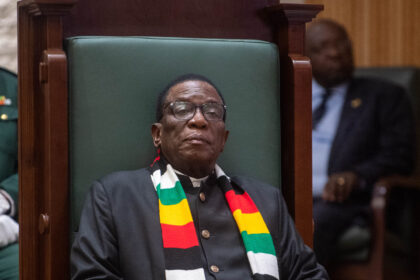Norton legislator has questioned the Budget presented by Minister Mthuli Ncube on the number of war veterans which keeps increasing.
In 1997, it was said there were about 34 000 war veterans in Zimbabwe and in 2022 the number of shot to 142 000.
Mliswa said the number must be interrogated as it could criminal in nature.
‘’As Government tradition, the security sector has been given a huge allocation but despite that, Zimbabwe has experienced both negative and positive peace.
‘’It is rather worrying that the number of war veterans continue to increase from 34 000 in 1997 to 142 000 in 2022. The Government was supposed to have dealt with these 34 000 who deserve to be given what belongs to them but how does this number increase to 142 000 in 2022? There was a great difference and clearly why we are trying to show that the budget is for everyone, this figure needs to be interrogated further.
‘’It has the highest level of corruption, misinformation and criminal in nature that there is no way war veterans can increase on 34 000 to 142 000 in 2022. Despite that increase, what boggles my mind is that 142 000 war veterans have been given ZW$46 billion, which is USD57.5 million, 1% of the total budget while Social Protection has been given ZW$50 billion, which is about USD63 million, 1.12% of the total budget.
‘’So what we are looking at is that because of corruption and criminal activities, certain monies meant for real issues have been taken out and we continue to fight corruption to no gain.
‘’ This is despite the fact that the Zimbabwe Social Protection Unit is in a dire situation of 3.8 million rural people facing food starvation and 1.6 million urban starvations. There are 4.6 million children living in severe acute malnutrition and 4.8 million in need of Basic Education Module known as BEAM. Therefore, if one is to take into account these allocations, it is to argue that the budget is not inclusive and it disregards the plight of the marginalised and vulnerable citizens.
‘’It is supposed to be a pro-poor budget and these figures do not talk to a pro-poor budget. It also misses international benchmarks and commitments. Zimbabwe does not work in isolation and we are bound by the various treaties that we sign. To this end, the 2023 National Budget analysis seeks to present a review of the politics of public resources and how it undermines national growth and development.
‘’The economic outlook and the massive dollar depreciation experienced for most of the 2022 budget is largely to blame for incessant inflationary pressures that eroded the new value of local currency earnings. This widened income inequality gaps and plug the majority of population into poverty with World Bank statistics showing that 40% are trapped in extreme poverty,’’ he said.



